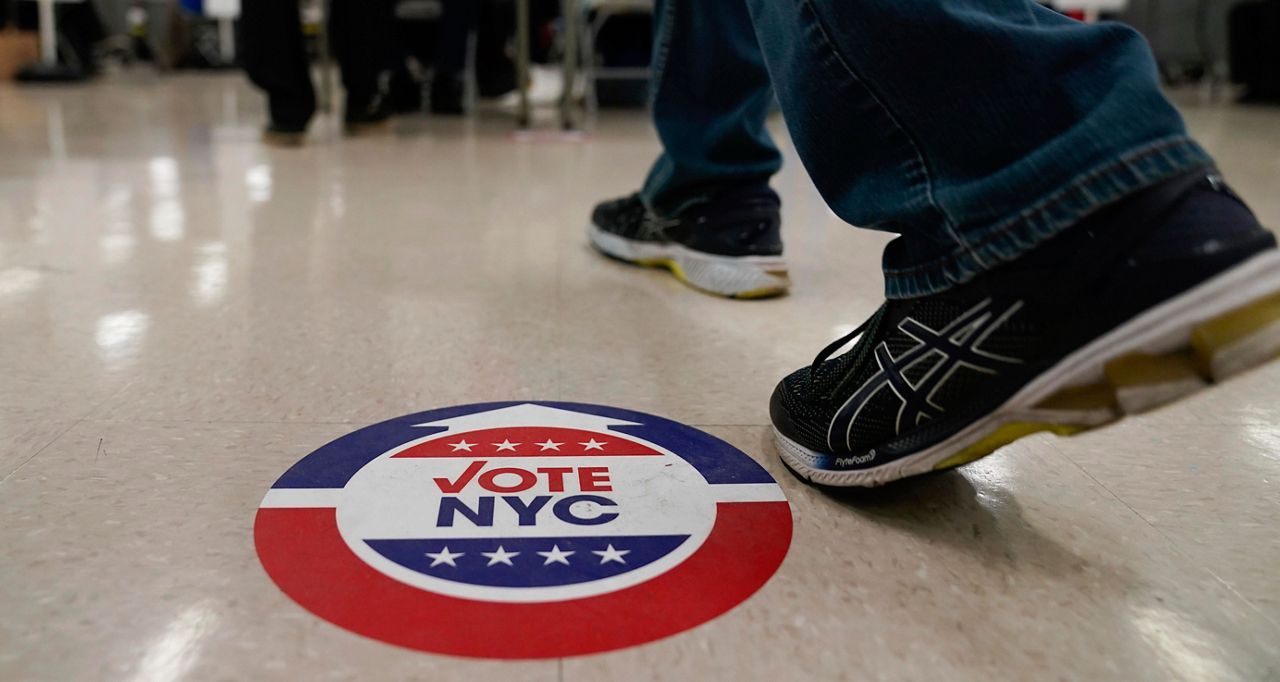While every seat in the State Assembly and State Senate is up for election this November, more than three dozen Democratic incumbents in the city are running unopposed.
Although there are more than half a million Republicans in the five boroughs, GOP party leaders say they can’t mount a fight in some heavily Democratic neighborhoods.
State Board of Elections data show there’s over 3.4 million registered Democrats in the city, compared to less than 530,000 claimed by the GOP.
Party leaders say the numbers are part of the reason why many Democrats don’t have a Republican challenger this November.
“Part of it is limited resources, and also, mainly in New York City, but other cities — just not having the chance to offer to a candidate: you can win this race,” Ed Cox, chairman of the New York State Republican Party, said.
In 12 State Senate races and another 30 in the State Assembly, mainly in Manhattan, Brooklyn and Queens, voters don’t have the option to cast their ballot for a Republican.
“It doesn’t mean that we don’t attract people to run in the races, but they understand it’s going to be very hard to win,” Cox said. “There are just many cities where the Democrats are overwhelming, and as a fact, it is very hard to attract a good candidate for a good race.”
Ed Cox says he’s targeting resources toward a competitive race for Assembly District 23 in the Rockaways — a rematch between GOP candidate Tom Sullivan and incumbent Democrat Stacey Pheffer-Amato.
In State Senate District 17 in South Brooklyn, freshman Democrat Iwen Chu is getting a challenge from Republican Stephen Chan.
For decades, Republicans held a slim advantage in the State Senate. But now, Democrats boast a veto-proof supermajority in both chambers, bolstered by members running unopposed across the five boroughs.
“It puts Republicans really on the defensive, where they don’t have as many fundraising opportunities because, generally speaking, donors and political players don’t want to give you money and support if they don’t think you can win,” Trip Yang, a Democratic consultant, said.
But the GOP did celebrate wins in 2022, picking up four Assembly seats in South Brooklyn and Staten Island — and making gains in traditionally Democratic immigrant communities.
“Places that have large amounts of Asian American voters, Jewish American voters, as well as large amounts of homeowners. You see this a lot in Southern Brooklyn and in Northeast Queens, there’s a much higher proportion of homeowners, compared to the renters that you see in Manhattan,” Yang said.
National elections also changed the calculus. Sources told NY1 some party leaders worried Trump could hurt GOP candidates.
“President Trump is going to be helpful to us, because he attracts his voters, and in suburban districts, particularly around New York, take a look at the polls, and you find out that in those districts Harris and Trump are basically even, head-to-head. But the Trump voters show up only in years where Trump is on the ballot,” Cox said.
Looking ahead, younger Republicans are finding ways to appeal to new voters.
“I think the Republican Party in New York City is really going through a rebuilding phase,” Peter Giunta, chairman of the New York State Young Republicans, said.
“The Republican Party has definitely moderated its position on abortion, and I think too, part of it is in New York, at least, there’s a realization that abortion access is already codified in state law,” Giunta said. “There are areas where Republicans haven’t taken a step back and, quite honestly, won’t, and that’s when we talk about public safety, making sure that our police officers are funded, that there’s enough cops in communities.”
Early voting begins on Oct. 26.



